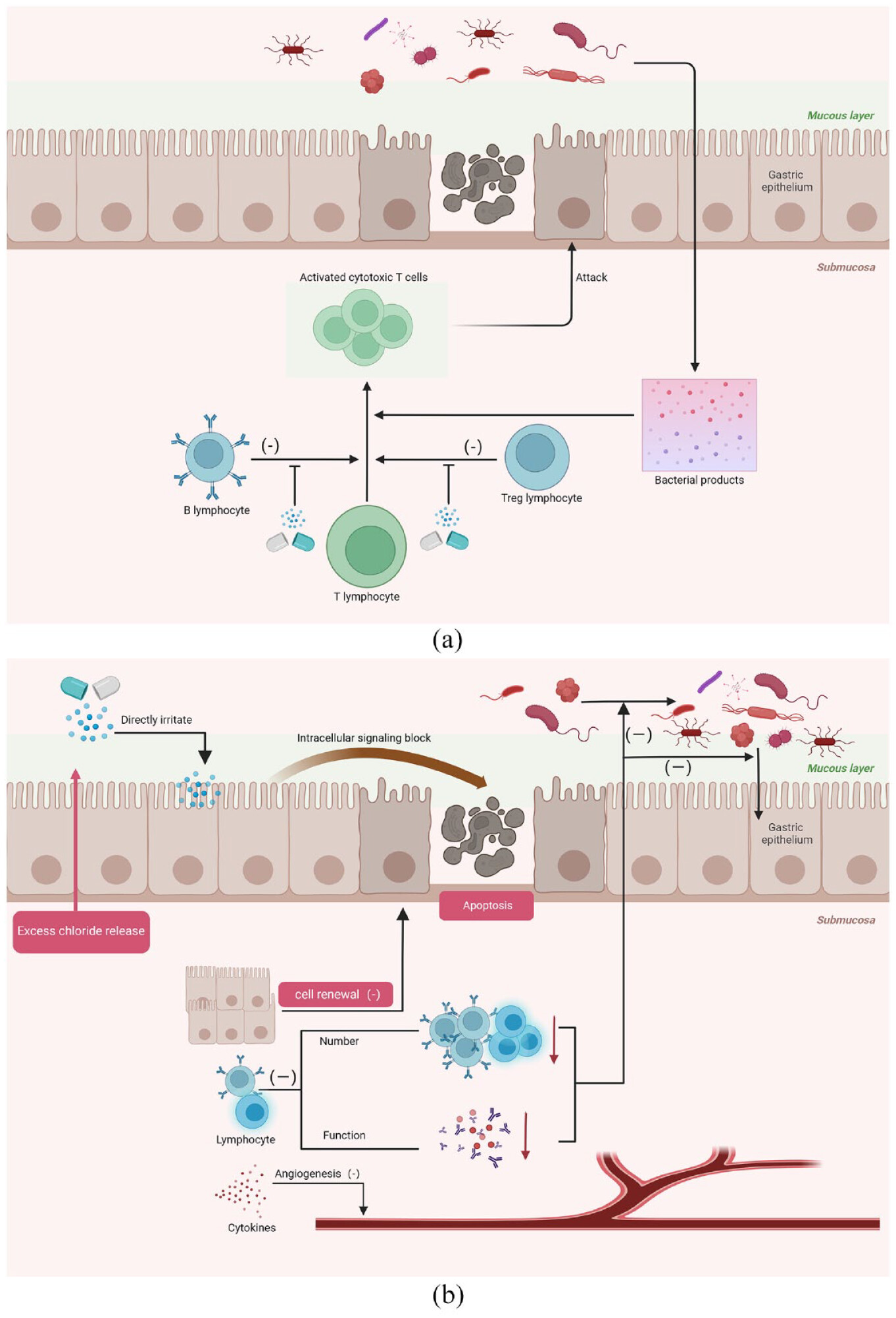Immunomodulatory medications are a mainstay of treatment for autoimmune diseases and malignancies. In addition to their direct effects on immune cells, these medications also impact the gut microbiota. As the primary place contacting with and absorbing drugs, gastrointestinal (GI) tract injury has become one of the main manifestations of adverse drug reactions. As a marker of GI injury, fecal calprotectin has been regarded as a predictor of intestinal inflammatory activity along with, gastrin, eosinophilic cationic protein, diamine oxidase, and bile acids. However, most of these biomarkers lack specificity, sensitivity, or technical validity, which greatly limits their clinical application. Thus, it is vitally important to find specific biomarkers for early diagnosis of Gastrointestinal toxicity of the ever-growing use of immunomodulators. Authors in this study discuss Gastrointestinal injuries induced by immunomodulators from the aspect of mechanisms, clinical, endoscopic, and pathological characteristics. They further suggested approaches to manage these newly recognized immunomodulator-induced GI adverse effects, raising awareness and vigilance among clinicians to increase early diagnosis and rapid referral to specialist care.
Link to the article: bit.ly/41c8FSG
Published On: /05/2023
